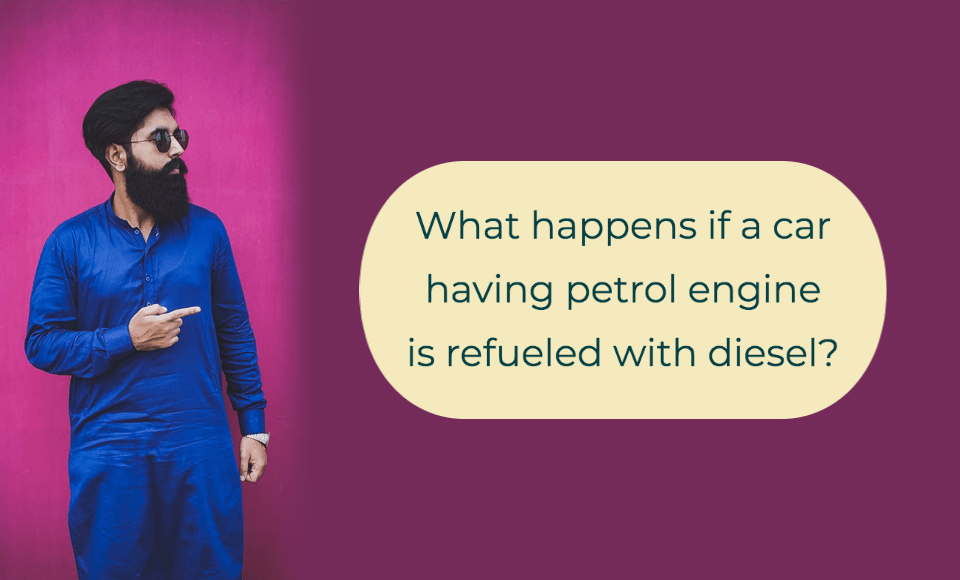Nothing! There’s fat chance of such a mistake taking place in the first place! Narrow necks of fuel tanks of petrol combustion cars will not allow the wider nozzle of diesel dispenser to enter inside the petrol tank, thereby cautioning the absent-minded petrol pump attendant to rectify his mistake. The nozzle of petrol dispenser is sufficiently narrow to enter inside a petrol tank. Since such built-in arrangement may not be there in the fuel tanks of motor cycles of all the makes, there is a possibility of this type of error.
Let us, however, assume for the sake of argument that such a mistake has taken place and a petrol combustion motor car has been refueled with diesel. Now both, petrol and diesel are quite distinct fuels. Diesel is much oilier than petrol and since it is not volatile it does not evaporate on its own. Extra density makes it heavier too.
When diesel is injected into the petrol engine’s cylinders by the fuel injection system, the spark of the spark plug fails to ignite it as diesel does not become vaporized. Compression of air-diesel mixture in the combustion chamber of diesel-engine cylinder which causes combustion of diesel is absent in the petrol engine of the motor car. Spark of the spark-plug is not sufficient to start combustion of diesel for starting and running the engine in the absence of adequate compression in combustion chamber of the petrol engine’s cylinder. So, in order to rectify the mistake one should empty the tank and fill it up with petrol. Still, the car will not start as there will be diesel in fuel pipe. Only when the petrol supply flows into the cylinders after the diesel has been disgorged, will the engine start purring again. In the meanwhile, no damage is caused to the motor car’s engine.
Although accidentally, putting in diesel should not cause much damage in some instances, it has. To understand what happens when a petrol-fueled vehicle is filled with diesel, you have to know how both types of engines work. A petrol engine works by igniting the air and fuel mixture inside the combustion chamber using spark plugs. As a result, petrol evaporates. On the other hand, a diesel engine does not have spark plugs. Instead, it runs with the help of a piston that compresses diesel to the point where it generates a tremendous amount of heat and catches fire.
At the same time, diesel is heavier as compared to petrol as it carries more density. So while petrol is supposed to evaporate, diesel will stick around in the engine, causing harm to the engine. Upon accidentally refueling your car with diesel, the chances are that your car will not start, but since you have mixed diesel with petrol and there is petrol present, there is a high probability that it will start. If you do get to start your car, it will run a few kilometers before it stalls. However, it needs to be mentioned that even without starting the car, diesel could clog the fuel lines and injectors as well. Therefore, if you do end up running the car, diesel will make its way into the cylinders, filling them and resulting in a hydraulic lock. This, as a result, can damage your crankshaft and conrods. To put it simply, it will not completely destroy the engine but have a serious impact on your car.
In such cases, upon finding out, you should immediately get your car towed instead of making it run to the workshop. This is one of the situations, which could lead to expensive damage if ignored for long. To rectify the problem, a mechanic will drain, flush and refuel your car. It is a time-consuming process because diesel will have to be completely flushed out of the car. Since fuel travels through the fuel pump to the engine via fuel lines, they will have to be thoroughly drained and cleaned as well.
Although such cases are pretty rare but not impossible, fortunately, it is an easy fix and does not put up expensive bills. Therefore, if you happen to be in such situations, turn off your car immediately and inform your insurer about it.
